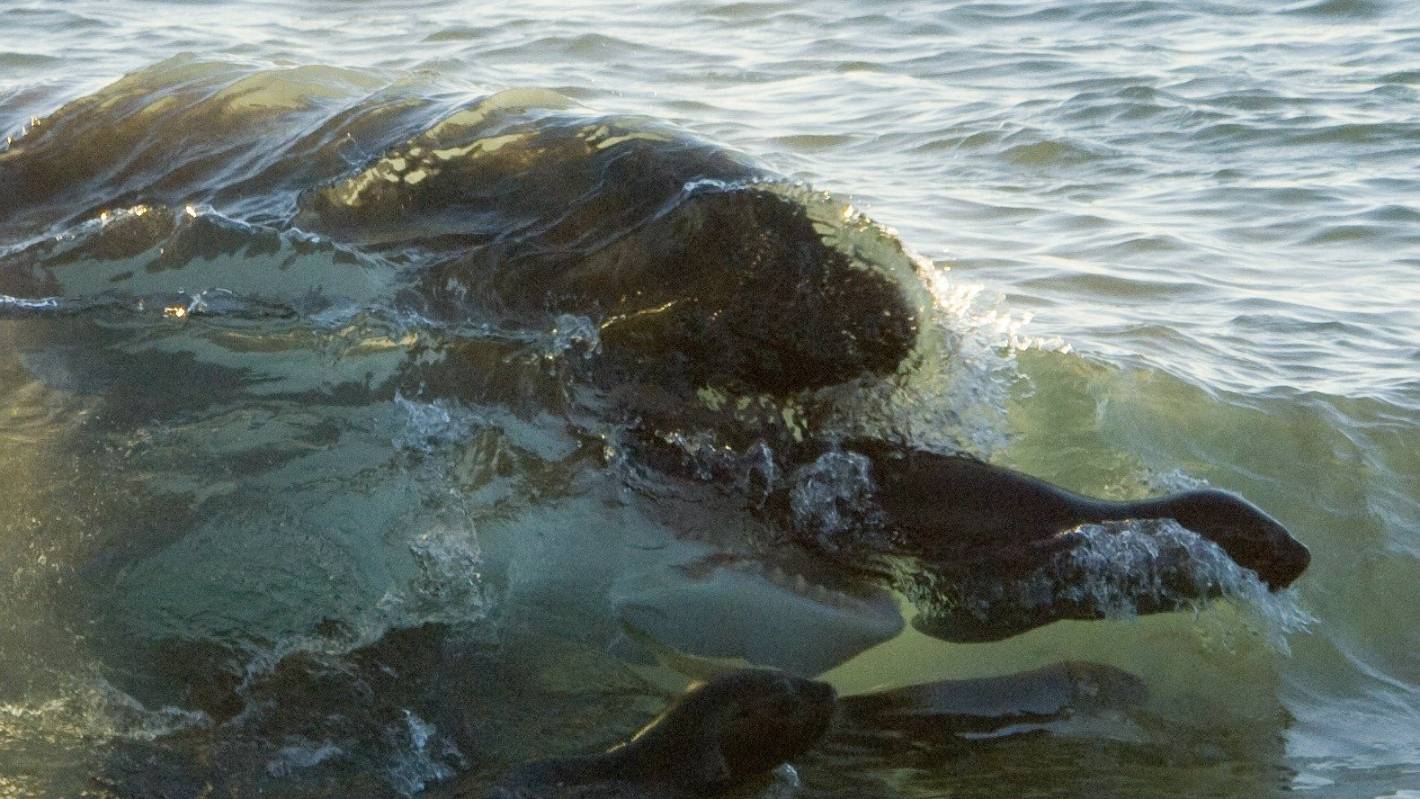Ingrid Visser/Punta Norte Orca Research/Supplied
A female orca uses the surf to catch a sea lion pup in Argentina, skills learnt from young.
While surfing on a wave might be a lot of fun, new research suggests orca in New Zealand and Argentina surf to learn vital skills in the water.
Scientists from the two countries have worked on orca research together for 20 years to better understand the animals and their cultures, Northland scientist Dr Ingrid Visser said.
While it was unusual for orca to hunt in surf zones, New Zealand coastal orca could often be seen catching a few waves as they hunted for stingray, she said.
But in Argentina’s Punta Norte, the orca are world-famous for their unique hunting technique.
READ MORE:
* Orca remain in harbour north of Wellington, police checkpoint halts rubberneckers
* Ben the orca who was stranded, run over by boat, now thriving 24 years on
* Funky Monkey the orca dodges disaster after underestimating growing girth
They voluntarily beach themselves to capture sea lions and elephant seals from the pebble beaches, Argentinian researcher Jorge Cazenave said.
Ingrid Visser/Punta Norte Orca Research/Supplied
A mother orca teaches her young calf to surf in small waves off the coast of Punta Norte, Argentina.
“This is a risky technique and it is taught by the experts to the young.
“They practice on ‘dry’ runs until they are confident enough to go for a live capture.”
The hunting technique is so famous, the site where they use this technique is now a UNESCO World Heritage Site.
In both countries, surfing skills are taught to offspring at a young age and both sexes take part.
Rosa Woods/Stuff
Orca researcher Dr Ingrid Visser says the research shows surfing is important for orca, both for play and to learn important survival skills. (File photo)
Visser said data about orca surfing, collected in both countries since 2004, made it clear it was a survival mechanism.
“Not only do they play – which is an important part of behavioural development, co-ordination and teamwork – but they are improving their skill set, so they’re able to get off the beach if it’s a bad situation.”
In a poster presented to a marine mammal biology conference on Tuesday, Visser, Cazenave and Argentinian researcher Juan Copello suggested the surfing was a critical survival skill for the orca.
Supplied
Argentinian researchers Juan Copello and Jorge Cazenave worked with Kiwi Ingrid Visser on the ‘Surfing for Survival’ poster.
Familiarity with waves and aptitude to manoeuvre in surf may reduce the chances of stranding, by allowing the orca to learn how to use the waves to get off the beach, the researchers said.
“Such a repertoire of skills would likely increase the long-term chances of survival for individuals and this may also reflect why these orca begin learning the technique at a young age.”
Visser said understanding how orca could develop a culture of surfing in two different oceans showed just how important this behaviour is.
Brianna Mcilraith/Stuff
Two orcas are ended the year by visiting Fitzroy Beach, New Plymouth, on Tuesday afternoon. (Video first published December 29, 2020.)
“Behaviours can fill multiple roles in an animal’s life – in this case surfing for both play and survival – which helps us better recognise that we are not the only ones with complex lives.”
Visser said undertaking the research between Aotearoa and Argentina allowed a better perspective than just looking at New Zealand coastal orca.
“The difficulties have always been funding – airfares for the research teams to travel, for example, have always been expensive and even more so after Covid-19.”
Cazenave and Copello were on site at Punta Norte when Argentina’s first lockdown occurred in 2020, so they remained on site and continued collecting data, she said.




